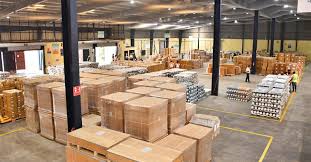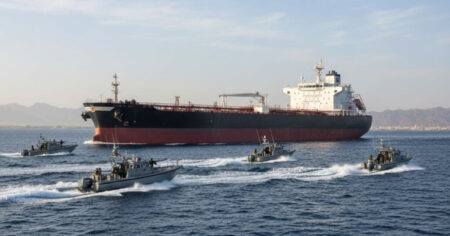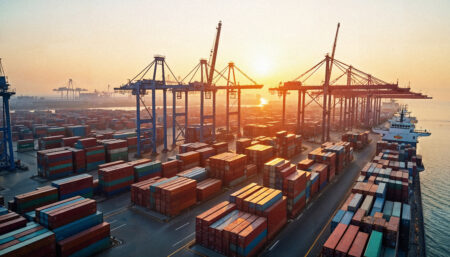Amit Tandon, CEO & Managing Director, Asia Shipping India, discusses project logistics, focusing on its unique challenges and innovations. He highlights the importance of cutting-edge technologies, eco-friendly practices, and enhanced safety protocols to navigate complex operations effectively and efficiently.

Training programs on safety best practices prepare personnel for high-pressure situations
Amit Tandon discusses the complexities of project logistics and what sets it apart from traditional logistics. This area involves the handling, storage, and movement of specialised equipment and cargo, which can often be large or hazardous. It requires specialised knowledge and innovative solutions to ensure safe and efficient operations while complying with regulations and sustainability standards. In today’s competitive market, the goal is to implement cost-effective logistics solutions that prioritise both innovation and sustainability, balancing operational efficiency with environmental responsibility to meet the changing needs of the industry.
Transforming project logistics
Recent global disruptions, such as geopolitical tensions and supply chain challenges, have reshaped project logistics. In response, companies are adopting innovative technologies to build resilience. For instance, blockchain enhances transaction transparency and security, while predictive analytics powered by artificial intelligence helps firms anticipate and address potential disruptions proactively. This commitment to advanced solutions allows businesses to tackle current issues and prepare for future uncertainties, keeping them competitive in a changing environment.
In the Indian logistics sector, advanced tracking systems and real-time visibility tools are vital for managing high-value, time-sensitive shipments. Using IoT sensors and GPS technology, companies provide continuous updates on cargo location and condition, improving transparency. Real-time data enables quick identification of disruptions, ensuring secure deliveries. Furthermore, cloud-based platforms facilitate seamless communication among stakeholders, ensuring everyone has access to critical information, which reinforces operational excellence in an unpredictable market.
Sustainable practices
The shipping and transport industries are rapidly adopting sustainable practices by switching to eco-friendly fuels and optimizing operations, including route planning. New cargo ships increasingly use eco-friendly fuels like LPG and hydrogen and larger vessels to enhance sustainability. This trend applies to project logistics, which involves handling large volumes of cargo. Careful planning is essential for both road and ocean movements, considering factors like route selection, transshipment, equipment handling, and storage conditions. Companies are committed to integrating eco-friendly practices into their operations, focusing on balancing economic, social, and environmental goals while maintaining efficiency and safety.
Innovations in safety protocols
Recent innovations in safety protocols and technology have significantly reduced risks in high-pressure logistics situations. Enhanced inspections at ports of origin and along transport routes, along with temperature-controlled containers and advanced handling equipment, have improved the safe handling of hazardous materials. Furthermore, comprehensive training programs on safety best practices equip personnel to manage high-pressure scenarios effectively. These advancements not only ensure secure storage and transportation but also foster a culture of safety, enabling companies to navigate the complexities of transporting dangerous goods confidently and efficiently.











